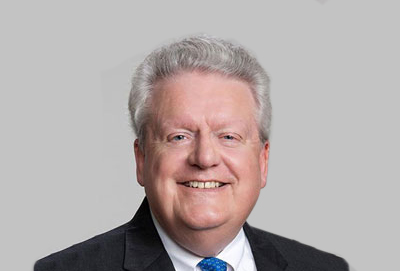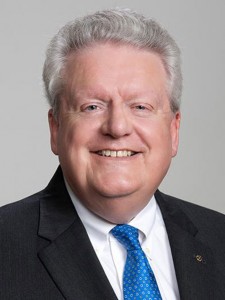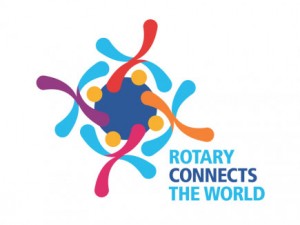
Dear fellow Rotarians and members of the family of Rotary,
I spend a lot of time thinking of family, not just my own or the extended family of Rotary, but also the families we are helping in the communities we serve. In many parts of the world, mothers and children face challenges to survive that most of us will never comprehend. According to the World Health Organisation, the risk of a woman in a low-income country dying during pregnancy or childbirth, or from related causes, is about 120 times higher than that of a woman living in a high-income country. It is encouraging that infant mortality rates are declining globally, yet 4 million babies annually still die within the first year of life.
In April, Rotary turns its attention to maternal and child health. And when we think of what we can do to help, we can look to clubs like the Rotaract Club of Calabar South-CB, Nigeria, for inspiration. It teamed up with the Rotaract Club of Canaan City (CB) in a program focused on educating mothers on best practices to prevent infant mortality and promote postnatal health for themselves and their babies. In Bangladesh, the Rotary Club of Dhaka North provides free surgeries and medicine to pregnant women who cannot afford the hospital costs associated with giving birth. I encourage you and your club to go to ideas.rotary.org to find projects like these that are helping to save mothers and children.
We also have witnessed how millions of people — families and entire communities — have been ripped away from their homes because of conflict, poverty, and disasters during the past decade. But Rotary has not stood idly by during the global refugee crisis.
During Rotary Day at the United Nations last November, we honoured a Rotary Peace Fellow and five Rotarians who are taking action to help refugee communities. Among them was Ilge Karancak-Splane of the Rotary Club of Monterey Cannery Row, California. After visiting several tent camps in Turkey, she led a Rotary project that collected 1,000 pairs of children’s shoes and socks for families in the camps and, later, led a global grant project to help educate refugee children. In March, Gay and I had the privilege of visiting a tent camp in Torbali and seeing firsthand the good work that Rotarians from Turkey and California were accomplishing with Syrian refugees.
The challenges faced by mothers, their children and refugee communities around the world are daunting. But when we remember our greatest strength — how Rotary Connects the World — we can begin to find solutions. Through our creativity, our resources, our dedication and our networks, Rotary can and will open opportunities to face these challenges.
Mark Daniel Maloney
President, Rotary International








